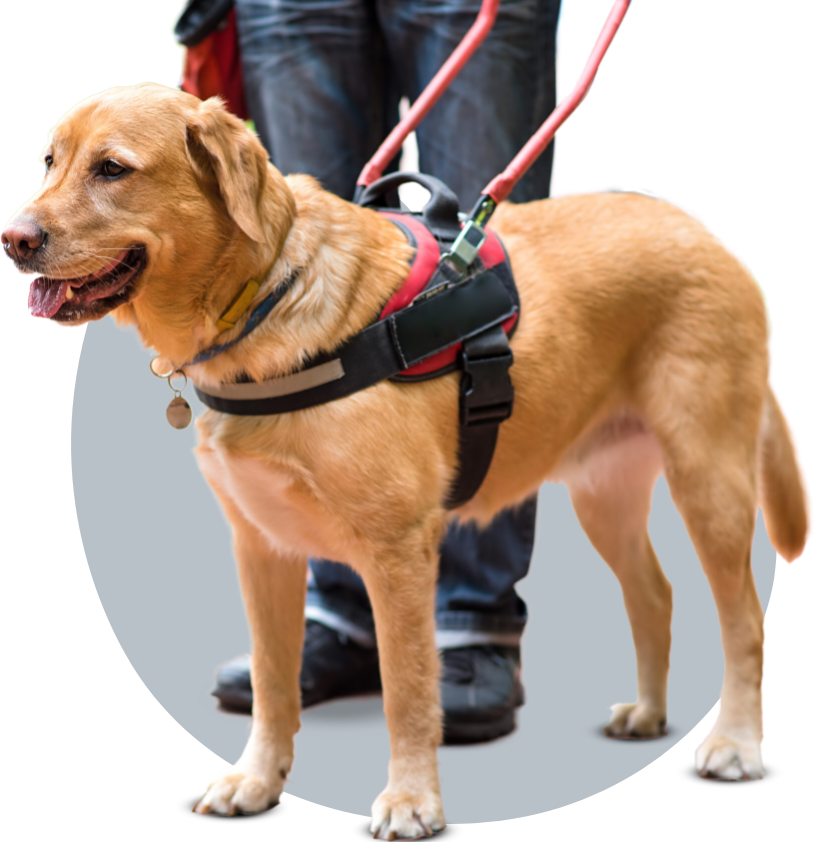How to Prepare for an ESA Evaluation: A Comprehensive Guide

play a crucial role in the well-being of individuals dealing with emotional or mental health challenges. If you’re considering getting an ESA, one of the most important steps is obtaining an ESA letter from a licensed mental health professional (LMHP). But what does the evaluation process entail?
In this comprehensive guide, we’ll walk you through everything you need to know about preparing for an ESA evaluation. From understanding what an ESA is to ensuring you meet the necessary qualifications, we’ll provide expert insights, practical tips, and answers to common questions.
What Is an ESA Evaluation?
An ESA evaluation is an assessment conducted by a licensed mental health professional (LMHP) to determine whether an individual qualifies for an emotional support animal. The primary goal is to establish if the person’s mental or emotional condition significantly benefits from the companionship of an ESA.
Unlike service animals, ESAs are not required to undergo specialized training, but they are protected under specific laws, like the Fair Housing Act (FHA).
Who Conducts ESA Evaluations?
ESA evaluations must be performed by a licensed mental health professional, such as:
- Psychologists
- Psychiatrists
- Licensed Clinical Social Workers (LCSWs)
- Licensed Professional Counselors (LPCs)
- Licensed Marriage and Family Therapists (LMFTs)
What Is an Emotional Support Animal (ESA)?
An Emotional Support Animal (ESA) is a companion animal that provides comfort and emotional support to individuals with mental or emotional disabilities. Unlike service animals, ESAs do not require specialized training, but they do have certain legal protections under U.S. law.
Legal Rights and Protections for ESA Owners
Understanding your legal rights is essential before starting the ESA evaluation process.
- Fair Housing Act (FHA): Protects individuals with ESAs by allowing them to live in housing with no-pet policies without discrimination.
- Air Carrier Access Act (ACAA) (Prior to 2021): Previously allowed ESAs on flights, but airlines now have discretion on ESA accommodations.
- Americans with Disabilities Act (ADA): Does not classify ESAs as service animals, meaning they do not have public access rights like service dogs.
How to Qualify for an ESA
To qualify for an ESA, you must have a diagnosed mental or emotional disability that substantially limits one or more major life activities. Common qualifying conditions include:
- Anxiety disorders
- Depression
- PTSD
- Panic disorders
- Autism spectrum disorders
Steps to Qualify:
- Place an order for an ESA letter service: Place an order for an ESA evaluation.
- Complete a Mental Health Assessment: Discuss your mental health history, symptoms, and how an ESA could improve your well-being. Taken after placing an order
- Receive an ESA Letter: If the LMHP determines that an ESA would benefit your condition, they will issue an official ESA letter, both digitally in your online account and a hard copy in the mail. If you don’t qualify for any reason, we provide 100% money back guarantee.
How to Prepare for an ESA Evaluation
1. Understand the Purpose of the Evaluation
The ESA evaluation determines whether you meet the criteria for an ESA based on your mental or emotional health needs. The LMHP will assess how an ESA could provide therapeutic benefits in your daily life.
2. Gather Relevant Medical and Psychological Records
Having documentation of your mental health history can strengthen your case. Consider preparing:
- Any prior diagnoses related to mental health conditions
- Previous therapy or counseling records
- Prescription medications related to mental health treatment
If you don’t have any supporting documentation or prior diagnoses, don’t worry, it’s not required.
3. Be Ready to Discuss Your Emotional or Mental Health Challenges
During the evaluation, you’ll share your mental health experiences and symptoms. Expect to answer questions like:
- How does your condition affect your daily life?
- Have you previously used coping mechanisms or therapies?
- How do animals provide comfort and support to you?
4. Know the ESA Letter Requirements
An ESA letter must include:
- The LMHP’s license number and credentials
- Confirmation of your qualifying mental health condition
- A statement explaining how an ESA helps alleviate symptoms
- Date of issuance and professional’s contact information
5. Avoid ESA Scams
Many online services claim to provide instant ESA letters, but not all are legitimate. Ensure you are working with a licensed and reputable mental health professional, like National Service Animal Registry’s network of qualified clinicians.

Frequently Asked Questions (FAQs)
Q: How long does an ESA evaluation take?
A: Most evaluations take between 15-20 minutes, depending on the complexity of your case.
Q: Can any pet be an ESA?
A: Yes, any domesticated animal can serve as an ESA, but dogs and cats are the most common choices.
Q: Does an ESA letter expire?
A: Yes, ESA letters typically need to be renewed annually. We provide discounted rates for renewing clients.
Q: Can landlords deny an ESA request?
A: Landlords cannot deny a reasonable accommodation request for an ESA unless the animal poses a direct threat or causes undue financial hardship.
Tips for a Successful ESA Evaluation
- Choose a reputable LMHP experienced in ESA evaluations, like National Service Animal Registry (NSAR)
- Be honest about your condition and how an ESA could improve your life.
- Keep all documents organized and ready for submission.
- Follow up promptly if additional information is requested.
Conclusion
Preparing for an ESA evaluation can feel overwhelming, but with the right knowledge and preparation, the process becomes much more manageable. By understanding what to expect, gathering the necessary documents, and working with a qualified mental health professional, you can take the next step toward obtaining an emotional support animal that will positively impact your mental and emotional well-being.
If you’re ready to begin your ESA evaluation, contact us today to schedule a consultation with one of our licensed professionals. Your journey to emotional support and companionship starts here.













































































